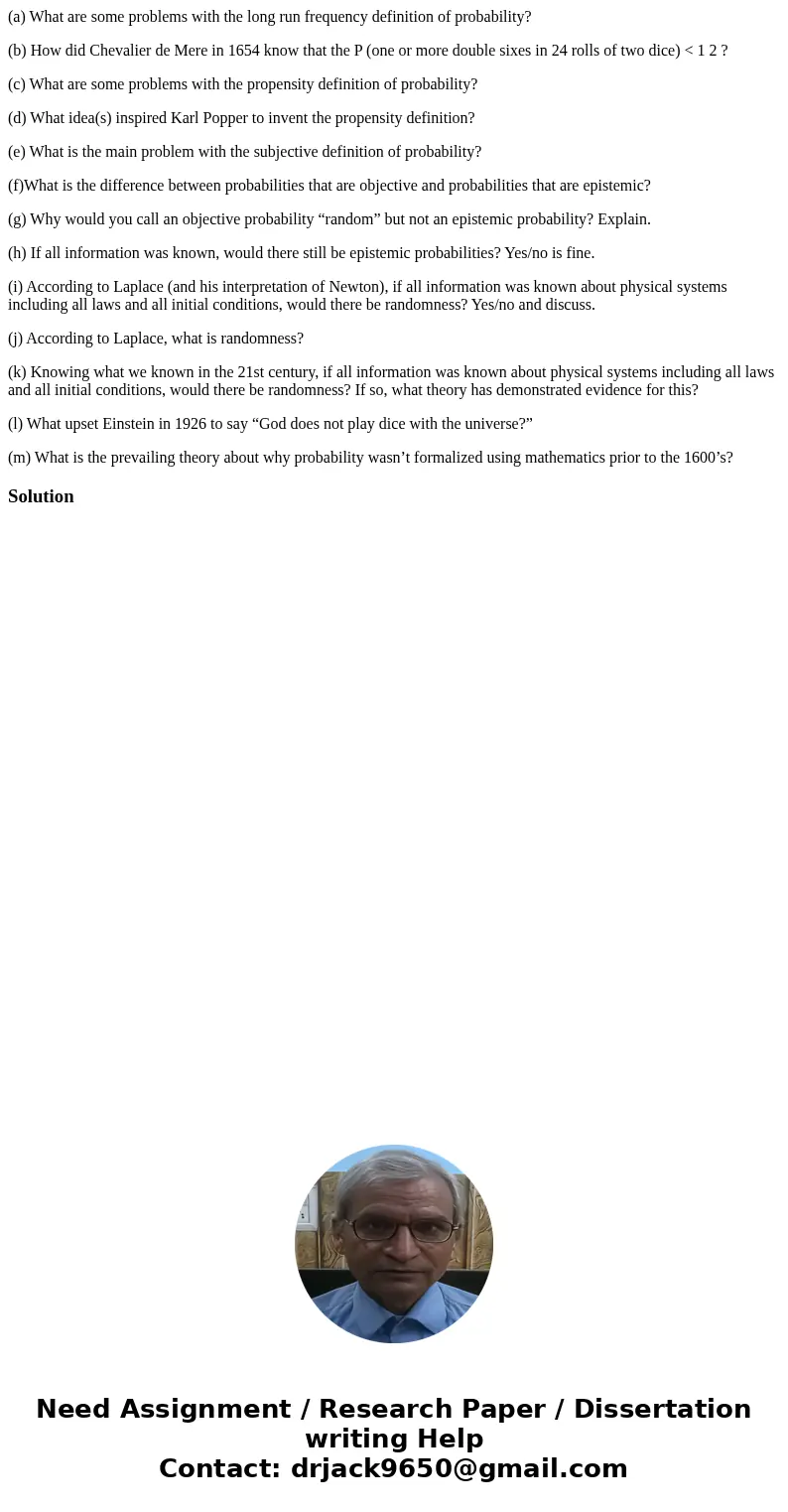a What are some problems with the long run frequency definit
(a) What are some problems with the long run frequency definition of probability?
(b) How did Chevalier de Mere in 1654 know that the P (one or more double sixes in 24 rolls of two dice) < 1 2 ?
(c) What are some problems with the propensity definition of probability?
(d) What idea(s) inspired Karl Popper to invent the propensity definition?
(e) What is the main problem with the subjective definition of probability?
(f)What is the difference between probabilities that are objective and probabilities that are epistemic?
(g) Why would you call an objective probability “random” but not an epistemic probability? Explain.
(h) If all information was known, would there still be epistemic probabilities? Yes/no is fine.
(i) According to Laplace (and his interpretation of Newton), if all information was known about physical systems including all laws and all initial conditions, would there be randomness? Yes/no and discuss.
(j) According to Laplace, what is randomness?
(k) Knowing what we known in the 21st century, if all information was known about physical systems including all laws and all initial conditions, would there be randomness? If so, what theory has demonstrated evidence for this?
(l) What upset Einstein in 1926 to say “God does not play dice with the universe?”
(m) What is the prevailing theory about why probability wasn’t formalized using mathematics prior to the 1600’s?
Solution

 Homework Sourse
Homework Sourse